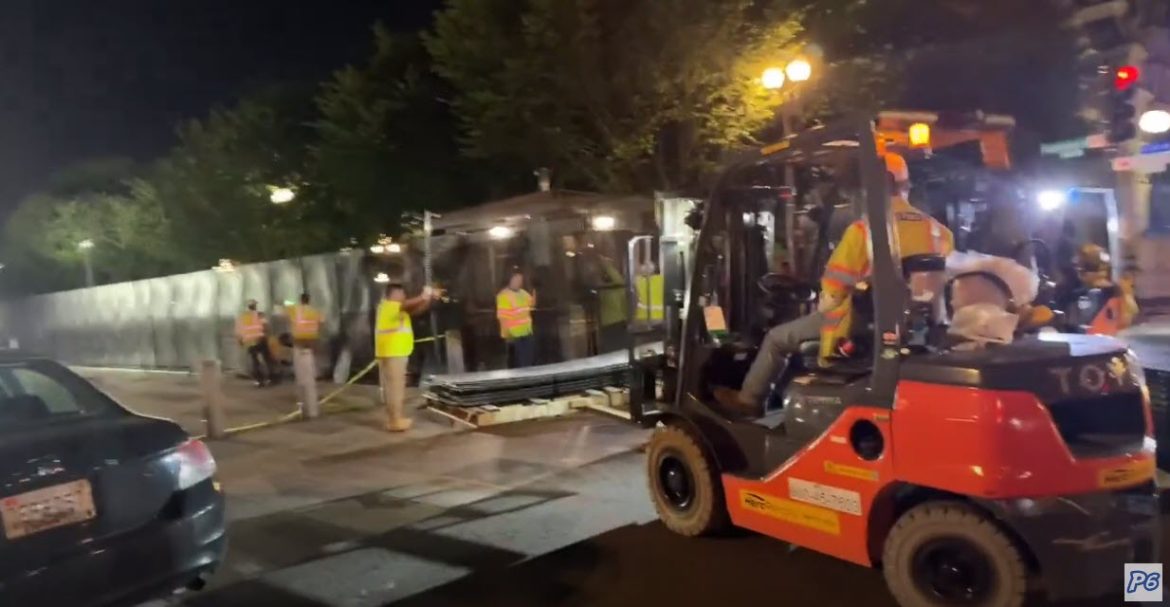Demonstrators from across the country are set to gather near the White House on Saturday to protest President Biden’s handling of Israel’s war in Gaza. The protest comes amid growing opposition to the administration’s support of Israel as it conducts targeted strikes in Rafah, a city in southern Gaza.
Protesters accuse Biden of backing down on his “red line” warning against a full-scale invasion of Rafah. In response to the anticipated large crowds, authorities have started erecting fencing around the White House complex to ensure security.
Organizers of the protest include several human rights groups and pro-Palestinian organizations, who have been vocal about the need for a ceasefire and increased humanitarian aid to Gaza. The groups argue that Biden’s support for Israel’s military actions exacerbates the suffering of Palestinian civilians and violates international human rights standards.
The demonstration is expected to draw thousands of participants, including activists, students, and community leaders. They plan to march around the White House, holding signs and chanting slogans that call for an end to the violence and a reassessment of US foreign policy in the Middle East.
Speakers at the event are anticipated to include prominent human rights advocates, lawmakers critical of the Biden administration’s approach, and individuals with personal ties to the region. They will highlight the dire humanitarian situation in Gaza, where access to basic necessities like food, water, and medical supplies has become increasingly limited due to the ongoing conflict.
In recent weeks, Biden has faced mounting criticism from both domestic and international quarters over his administration’s handling of the Gaza crisis. Critics argue that his approach has been too lenient towards Israel’s military actions, failing to adequately address the plight of Palestinian civilians caught in the crossfire.
The White House has defended its stance, stating that it is committed to Israel’s right to self-defense while also advocating for measures to protect civilians and facilitate humanitarian aid. However, the administration’s efforts to balance these priorities have not appeased its critics.
As the protest looms, tensions in Washington are high. The deployment of fencing and increased security measures around the White House signify the authorities’ anticipation of significant public unrest. This protest is one of several recent demonstrations reflecting the deepening divisions within the US over its role in the Israel-Gaza conflict.
The outcome of this protest and the administration’s response could have lasting implications for US foreign policy and its relations with both Israeli and Palestinian communities, as well as broader international perceptions of American leadership in global humanitarian issues.



